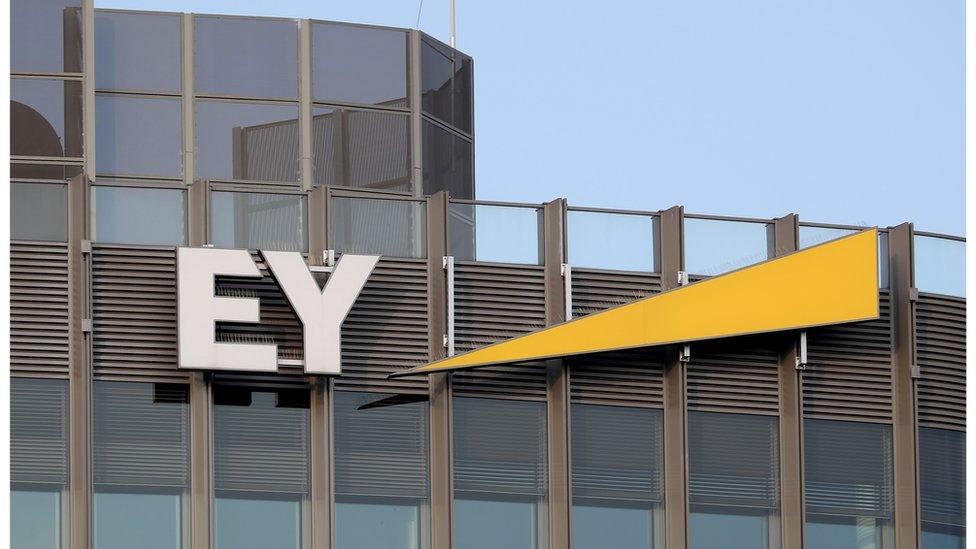Stormont departments spend £7m on consultancy fees
- Published

Northern Ireland's government departments spent £7m on consultancy fees over a three-year period, figures show.
The payments were made between 2016-17 and 2018-19. For most of this period, Stormont was not sitting.
The power-sharing coalition fell apart in January 2017 in a bitter row between the DUP and Sinn Féin over the botched Renewable Heat Incentive (RHI) scheme.
The Stormont Executive was only re-established in January of this year.
During the three year period, consultants were hired across government for projects in a range of areas.
These included accounting, media handling, legal, housing and planning, welfare, and infrastructure projects.
The Department for Communities paid out the most - £2.35m - with more than half going to consultancy firm EY.
The Departments of Finance and Economy had the next highest spends at £1.72m and £1.25m respectively.
The departments said the level of expertise required is not always available in the civil service.
2016-2019
£7mTotal spent by all departments
1: £2.35mCommunities
2: £1.72mFinance
3: £1.25mEconomy
4: £603,875Infrastructure
5: £541,332Daera
The figures were released to BBC News NI following a Freedom of Information request.
Of the £2.35m paid by the Department for Communities, £1.29m was paid to EY spread over the three years.
This was for four pieces of work "in support of welfare reform and modernisation initiatives", and another related project.
PwC received £436,000 from the Department for the Economy - £431,000 of which was for the "independent review of allegations" related to the RHI scheme.
The Departments for Communities and Economy were both established in 2016, which is why BBC News NI examined the figures for each department from that year.
Figures for 2019-2020 are not yet publicly available for all departments.
A spokesperson for the Department for Communities explained the amounts by saying the level of expertise required was "not always available through internal resources".

The Department for Communities paid out the most - £2.36m - with more than half going to consultancy firm EY
It highlighted in particular the work related to the UK-wide welfare reform project that has been taking place in recent years.
The department said that given the complexity of the implementation of welfare reform, the expertise was not readily available within the wider civil service.
"In such circumstances expertise is brought into the department on a short term arrangement," the spokesperson added.
Consultants PwC received the second highest amount from the Department of Communities - £447,737 - over the three years for two projects.
One was entitled "finance and organisational design" and the second related to "structural reform of landlord and non-landlord functions for the social housing sector".
'Provide additional skills or expertise'
The Department of Finance did not disclose which consultancy companies it paid, despite being asked to do so in a Freedom of Information request from BBC News NI.
A department spokeswoman said the civil service used consultants as they provided "additional skills or specific expertise".
"Where possible, a transfer of those skills to departmental staff is sought to provide future benefits," she said.
"They [consultants] carry out activities such as providing analysis or advice, assisting with the development of new systems, structures or new capabilities within the organisation.
"They also provide independent assessments of a particular function, situation or project."
The department said all consultancy goes through the relevant approvals process, where the appointment must be justified and each project is monitored to ensure costs are kept "within approval levels".
"Post-project evaluations are also carried out at the end of each project to review both delivery and costs."
The Department of Justice had the lowest spend over the three years, at £20,183.